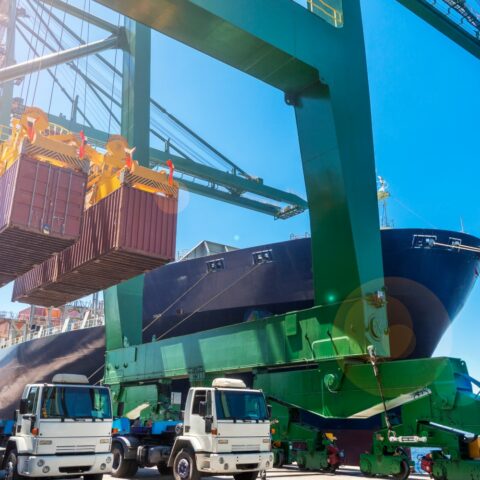The Challenge
North Macedonia (MKD), a small landlocked country in south-eastern Europe bordering Greece, Albania, Bulgaria, Kosovo*[1], and Serbia, has ambitious plans to grow its economy, including through attracting foreign direct investment and bolstering untapped e-commerce potential.
MKD sees its future as part of the European Union (EU) and has applied for full membership. In the meantime, it is working to increase exports to the bloc, concluding important trade agreements with the EU and the European Free Trade Association (EFTA), adopting EU standards for goods, and aligning national legislation with EU laws.
It is also a signatory to the Central European Free Trade Agreement (CEFTA), which aims to expand regional trade by creating a more business-friendly environment among markets. However, throughout the CEFTA, complicated and unpredictable postal customs procedures continue to raise the time and cost of trade, acting as a barrier to inter-party commerce, especially for micro, small and medium enterprises (MSMEs).
MKD has shared in the rapid global expansion of e-commerce sales in recent years, but the current, manual clearance procedures for postal items cannot manage the inexorable rise in volumes. It typically takes an average of five days for the clearance and delivery of goods, with Customs systematically reverting to physical inspections of all parcels and most small packages[2].
CEFTA markets have identified customs fees and procedures along with inefficient payment processes as significant obstacles to e-commerce export growth across the zone and to the lucrative EU marketplace on its doorstep. Despite partial regulatory harmonisation, inconsistencies remain in customs clearance, with procedures only partially digitalised and often misaligned with EU standards.
What We Are Doing
This project aims to speed up delivery of parcels and small packages by streamlining and simplifying the postal and customs procedures inhibiting the growth in global e-commerce trade.
In addressing these challenges, the Alliance in cooperation with the Open Regional Fund for Southeast Europe – Foreign Trade will support MKD in introducing digital pre-arrival processing, enabling electronic declaration of compulsory information to authorities prior to import. This will allow the Customs, to conduct the appropriate risk assessments and process declarations before goods arrive at the crossing point, facilitating prompt release.
Through the public private partnership approach to targeted trade facilitation, project implementation will involve key stakeholders from government and business, including Customs, the postal service (Post of North Macedonia) and the Association for e-commerce of Macedonia, which represents traders, including MSMEs, engaging in online commerce.
Aside from technical assistance, implementation will entail intensive training and other change management activities to build the capacity of relevant public and private sector stakeholders in transitioning to the new system.
The project has already achieved significant future buy-in beyond MKD. The CEFTA customs e-commerce expert group has expressed its commitment to implementing:
- Obligatory submission of Electronic Advanced Data (EAD) for all postal, courier, express and parcel items containing goods for customs clearance.
- Development of standardised customs data to enable automated clearance.
- Initiation of pilot projects among interested parties to prepare the automated exchange of postal data and fully digital postal customs clearance across the CEFTA zone.
The Impacts
By creating safe and efficient channels for electronic data exchange in line with EU and global World Customs Organization (WCO)/Universal Postal Union (UPU) standards, this project will streamline deliveries of postal goods, increase online trans boundary trade and better position MKD to fulfil its potential.
Successful implementation will address many of the current challenges limiting e-commerce growth, including:
- Streamlining and simplifying customs processes, including risk management processes, will help to eliminate the delays hindering the smooth flow of goods across borders.
- Digitalising systems will make customs procedures more efficient and transparent, encouraging trade, with outsized benefits for resource poor MSMEs.
- Introducing an electronic pre-clearance system will underpin the transition from manual, paper-based services.
- Supporting compliance with EU and international standards and close adherence to WCO and UPU guidelines will overcome challenges in policy formulation and enforcement of extensive trade standards at various legislative and operational levels.
[1] *This designation is without prejudice to positions on status and is in line with UNSCR 1244 and the ICJ Opinion on the Kosovo declaration of independence


 North Macedonia
North Macedonia

